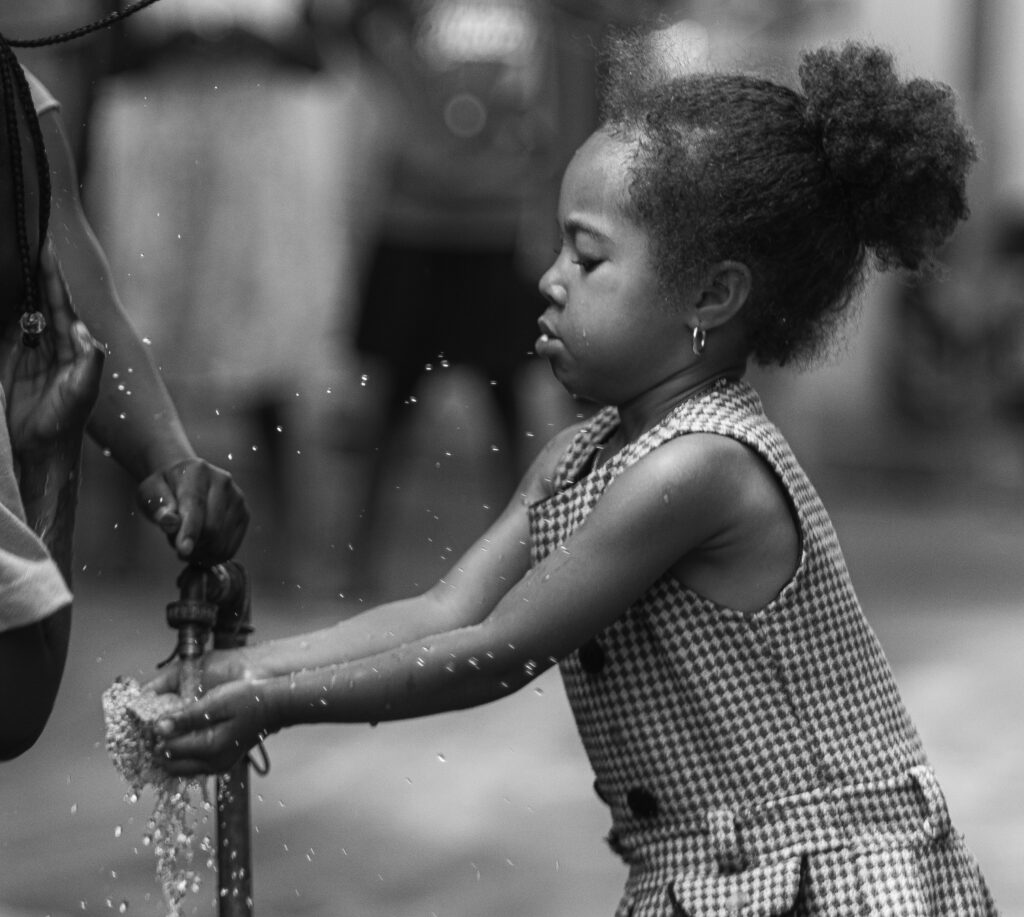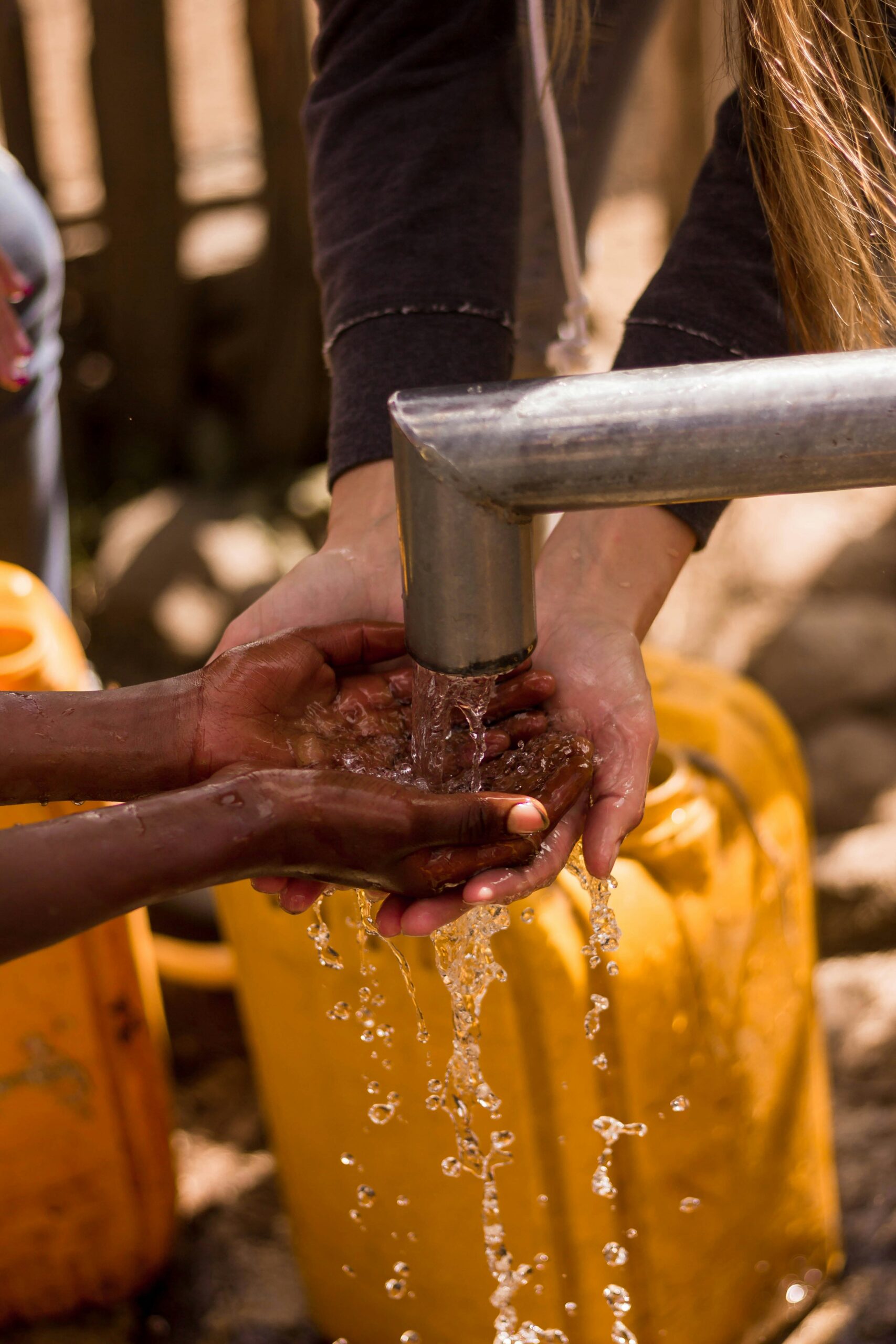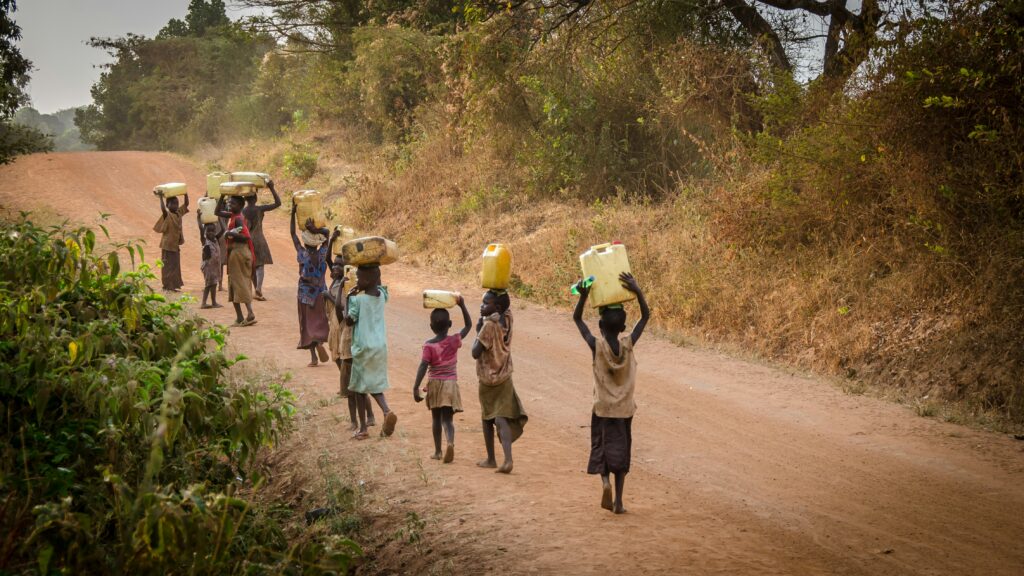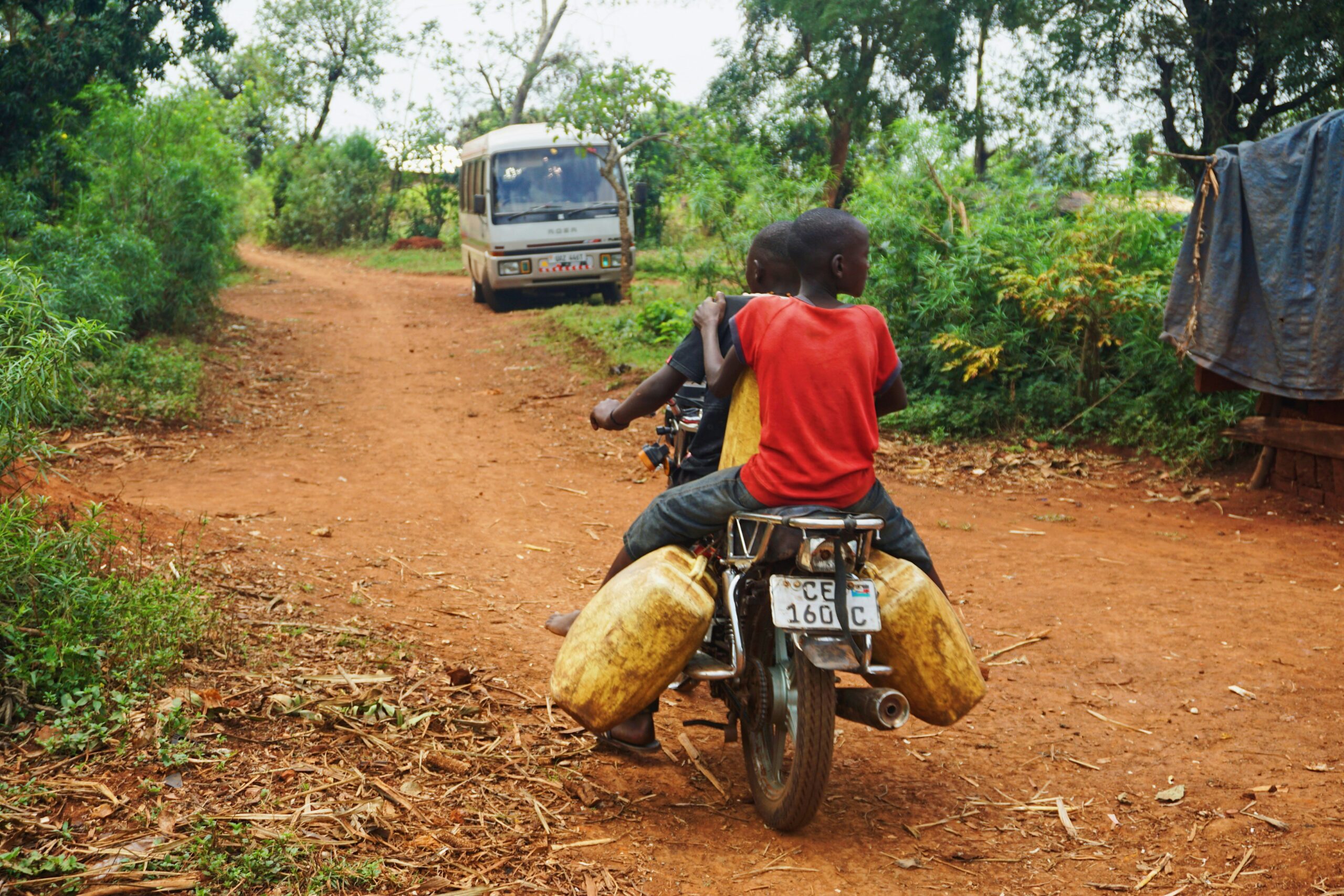General Info
Supported entity and its role in implementing the program:
-
Uganda’s Ministry of Water and Environment (MWE)
Sector:
-
Water, Sanitation and Hygiene
Timeline:
-
1st January 2024 – 31st December 2029
Instiglio’s point of contact:
-
Francisco Garcia – francisco.garcia@instiglio.org
Type of support provided by Instiglio:
-
Sector diagnostics and strategy, RBF design, public sector systems change
Project members:
Gareth O’Hagan, Hollie Lippert, Kipp Clarke, Douglas Emeott, Francisco Garcia, Kimathi Muriithi, Dennis Gichimu, Michael Maranga, Tevin Rwamahe, Belinda Muthuri, Obed Matara
Abstract
Uganda’s rural water sector faces persistent coverage and functionality gaps, with only 50% of rural inhabitants accessing improved water sources. In addition, Uganda’s water sector relies significantly on project-based donor funding, which is unsustainable. In response, Uganda’s Ministry of Water and Environment (MWE) issued its 2020 Operation and Maintenance Framework to professionalize service delivery by outsourcing O&M to Area Service Providers (ASPs) under formal performance contracts. However, the rollout of the Framework has been limited by institutional overlap, capacity constraints, and competing government priorities. Pilots by social enterprises, private organizations, and district water offices continue to provide demonstrations of the model proposed within the O&M Framework.
Instiglio’s proposed opportunities, packaged under a tailored “Delivery Accelerator,” continue to advance into three workstreams—an Integrated Rural Water and Sanitation Facility (IRWSF) to pool finance; a sector‐wide performance management strategy aligned with MWE’s regulatory requirements; and performance contracts for ASPs, each reinforcing the others while remaining independently actionable. Early engagement through MWE-led committees has advanced financial modeling, KPI harmonization, and contract templating with broad stakeholder input. In the short term, this approach aims to strengthen accountability and operationalize the O&M Framework, while longer-term gains will come from sustained institutional capacity building, blended financing structures, and embedding performance culture into MWE and the government of Uganda’s policies and governance structures.
Project
Partners

The Issue
Rural safe water supply coverage in Uganda stood at 67% as of 2023, due to historically low safe water provision and poor functionality rates of water systems. This is partially explained by the lack of a financially viable model to maintain rural water systems. A significant portion of rural water funding is dependent on development partners in the form of short-term project support, which is not sustainable in the long term.
Uganda’s Ministry of Water and Environment (MWE) rolled out the 2020 National Framework for Operation and Maintenance of Rural Water Infrastructure (2020 O&M Framework). The Framework provides a mandate to professionalize rural water service delivery by having District Local Governments (DLGs) formally outsource the O&M function to Area Service Providers (ASPs), through formal contract-based performance management arrangements. However, the O&M Framework has not yet been fully rolled out across the country, and efforts towards roll out are hindered by competing priorities within the government of Uganda (GoU) causing the water sector to be deprioritized, limited devolvement of water services, and capacity of districts to operationalize the Framework and overlapping institutional mandates which limit sector effectiveness.
While the O&M Framework has not been fully implemented, social enterprises, private companies and district water offices (DWO) have piloted aspects of the Framework, providing early examples and learning opportunities for further rollout. The Framework additionally provides a list of key performance indicators (KPI) and targets with the goal of embedding performance management and results-based approaches to the rural water sub-sector. This provides an opportunity to strengthen existing performance management systems, KPIs and targets for the sub-sector.
Financial information for the rural water sub-sector at national level is not readily available, leading to an incomplete picture of sector finances. Additionally, Uganda’s larger Natural Resources, Climate Change, Environment, Land and Water Management (NRCCELWM) program, in which the water sector is housed, has a significant funding gap. This, coupled with uncertain financing from development partners, has led to a need to finance sub-programs through non-traditional, innovative funding to close the gap. The model proposed by the O&M Framework requires additional funding to operationalize, a gap that cannot be sufficiently covered by user fees.
Solution
Instiglio has been exploring opportunities to support Uganda’s Ministry of Water and Environment (MWE), to adopt innovative financing solutions and results-based approaches to promote effective and sustainably financed safe water services in rural Uganda. Instiglio initially assessed the sector, mapping out rural water stakeholders, regulations, and financial flows, generating insights across these dimensions.
Instiglio’s proposed approach is packaged in a tailored ‘Delivery Accelerator’ model to address key barriers identified. The opportunities are focused on bridging the financial gap in the sub-sector, operationalizing specific components of the O&M Framework, and increasing rural water accountability. The opportunities collectively reinforce each other and can also be implemented independently. Since November 2024, Instiglio has supported the MWE to deliver these initiatives through MWE-led committees, which include sector experts and key stakeholders. The committees have further advanced these opportunities into three main workstreams:
– Integrated Rural Water and Sanitation Facility (IRWSF): This facility seeks to help address the existing financial gap within rural water service provision by pooling funding from different sources. IRWSF will support the operationalization of the O&M Framework, such as funding for installation and rehabilitation of rural water infrastructure, and to jump start provision of services in districts. The facility will fund performance-based approaches to rural water service delivery with the aim of helping to increase funding to the sector and to improve efficiency within the sector. IRWSF leverages learning from similar facilities in the region, such as Kenya, Ethiopia, and Tanzania. Instiglio has been supporting the design of the early working financial model and technical components of the facility and has started to develop the scope and structure required for success. In addition, Instiglio has also supported the development of the MWE’s fundraising strategy for the Facility and a roadmap to engage potential funders.
– Performance management strategy and roadmap: Instiglio is supporting MWE to develop a performance management strategy for the rural safe water sub-sector, with the aim of improving accountability, enhancing a results-focused and performance culture within the sector. So far, the committee has developed a KPI framework across various governance levels (ASP, DLG, MWE), refined existing KPIs and has incorporated relevant documents such as existing monitoring guidelines and water resource regulations. In addition, the committee is aligning on final elements of the strategy to ensure harmonization with MWE’s WURD regulation requirements. The strategy also includes a roadmap for integration into existing monitoring and information systems (MIS) and includes the setup of the performance strategy as a basis for performance contracts.
– Performance contracts: Instiglio is currently supporting MWE to actively explore opportunities with existing partners to integrate the performance strategy into template performance contracts that can be rolled out to districts and area service providers. In addition, Instiglio is exploring performance contract pilots for learning and scalability purposes, and with the aim of operationalizing the proposed performance-focused approach proposed in the O&M Framework and supporting documents. This will shift rural water service delivery to focus on results and improve accountability between area service providers (ASPs) and rural water users.
Instiglio is operating as a technical support partner, enabling MWE to drive water sector reform. This, coupled with a strong focus on enabling a highly collaborative environment, allows Instiglio to learn from and leverage sector experts such as Water for People, Whave, IRC WASH, UWASNET, WHO, Uptime, Uduma, GOAL, and others, additionally improving coordination within the water sector. This has ensured that the opportunities are built upon precedence. For example, the IWSF incorporates learnings from previous efforts such as the Joint Partnership Fund and the World Bank’s Uganda Inter-Governmental Fiscal Transfers (UgIFT) program.
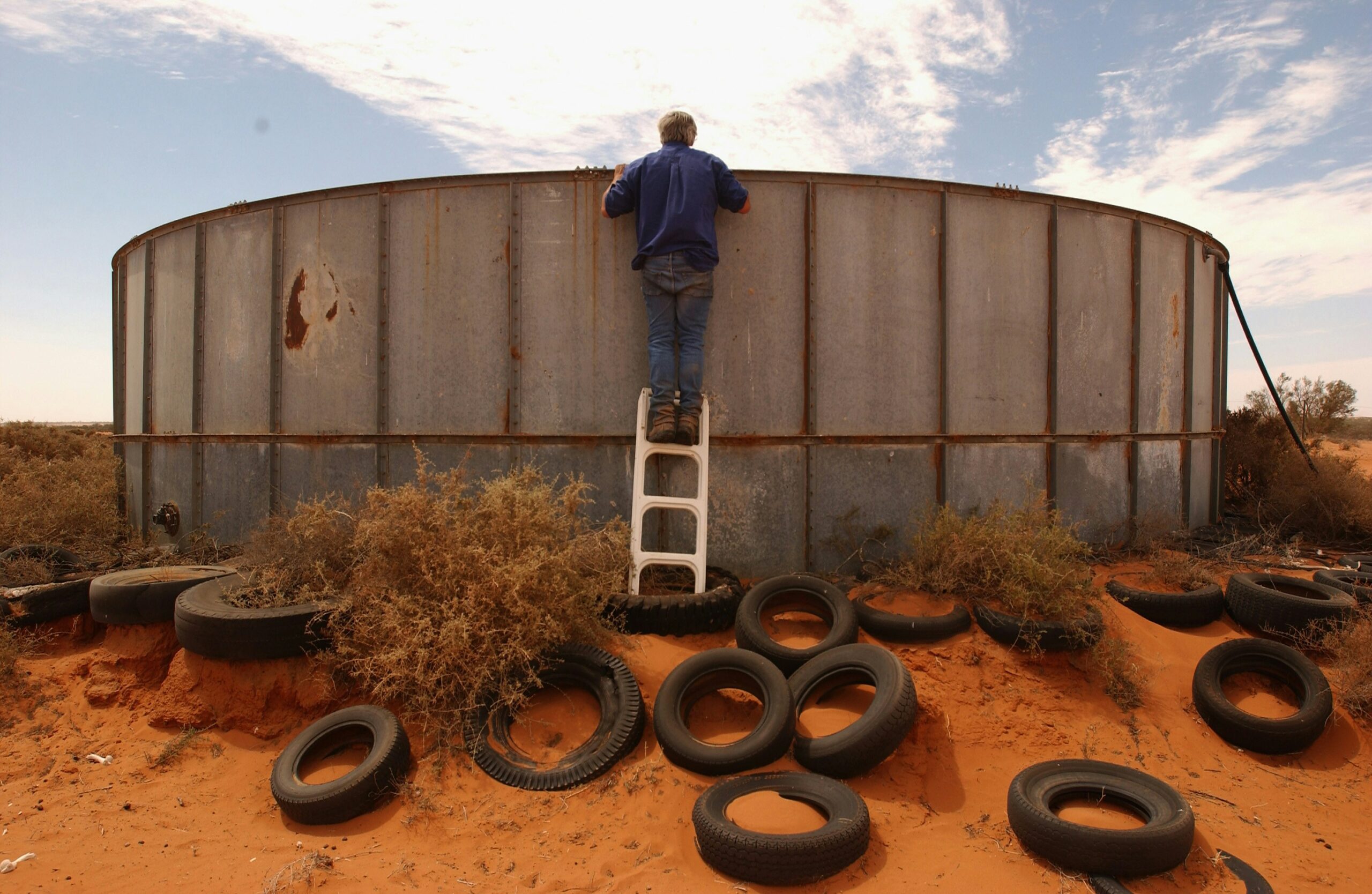

Impact
In the short term, Instiglio is focused on strengthening MWE and GoU’s focus on results in the water sector, by:
– Actively supporting the operationalization of the O&M Framework, by reinforcing its existing performance mechanisms to be more results oriented, and to support the adoption of more accountable and transparent governance structures that lead to improved service delivery within the water sector.
– Embedding performance contracting in MWE and the larger GoU’s systems by supporting the alignment of incentives and creation of appropriate governance mechanisms, and empowering national and district governments to sustainably operationalize performance contracts.
– Supporting the development of IRWSF as a facility to enable MWE to progress towards a more sustainable financing model. This includes reducing requirements for donor funding and effectively engaging partners with a willingness to invest in the water sector. Additionally, this includes ensuring that available funding is deployed more effectively to support longer-term impact by incentivizing the development of performance structures such as the performance management strategy and the performance-based contracts.
In the long term, Instiglio is supporting the MWE to deliver systems transformation to improve water service provision. The goal is to achieve more reliable and resilient water services to rural Ugandans. Instiglio is supporting MWE to shift away from short-term ad-hoc approaches towards a long-term sustainable approach that leverages the O&M framework as a foundation for rural water service provision. Overall, this aims to build more sustainable, professional, performance-driven rural water services that reduce the funding gap in the sector and ultimately provide improved services to people in rural Uganda.
